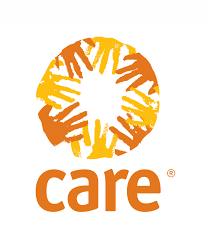Care International Nigeria, a prominent non-governmental organization (NGO), has called upon the Federal Government to establish a robust policy framework aimed at fostering a culture of savings, particularly among women, to bolster economic resilience.
Addressing attendees at the 2024 National Savings Group Conference in Abuja on Tuesday, themed “Accelerating Financial and Economic Inclusion: The Pivotal Role of Savings Groups in Nigeria,” Dr. Hussaini Abdul, the Country Director of the NGO, emphasized the pivotal role of savings in alleviating poverty, especially in rural areas.
Dr. Abdul stressed the imperative of fortifying savings groups’ mechanisms to enhance widespread participation across the nation. “Poverty remains deeply entrenched, particularly in rural areas, often exacerbated by the absence of essential social services, including financial facilities,” he remarked.
He acknowledged the longstanding financial practices prevalent in rural communities, such as “esusu,” “ajo,” or “adashi,” which have evolved as coping mechanisms. Dr. Abdul highlighted the importance of bolstering these indigenous financial structures through improved coordination, management, and accountability systems.
“We advocate for a proactive engagement from government entities at all levels to devise a comprehensive policy framework supporting the institutionalization of these mechanisms,” he added.
The conference, Dr. Abdul noted, aims to foster a conducive environment for collaborative efforts toward advancing financial inclusion through savings groups nationwide.
In a statement delivered on behalf of Vice President Kashim Shettima by Dr. Nurudeen Zauro, Technical Adviser on Financial Inclusion to President Bola Tinubu, the government pledged to review existing policy frameworks to facilitate an enabling environment for savings groups.
Dr. Zauro highlighted the pressing need to address financial exclusion, with approximately 26% of Nigerians currently outside the formal financial system and an additional 36% considered unbanked, primarily from the informal sector. He underscored the link between financial inclusion and broader socioeconomic challenges, including multidimensional poverty and security concerns.
Recognized partners in the initiative include Plan International, ActionAid, Mercy Corps, USAID, GIZ, The World Bank, and the Food and Agriculture Organization of the United Nations (FAO).

